

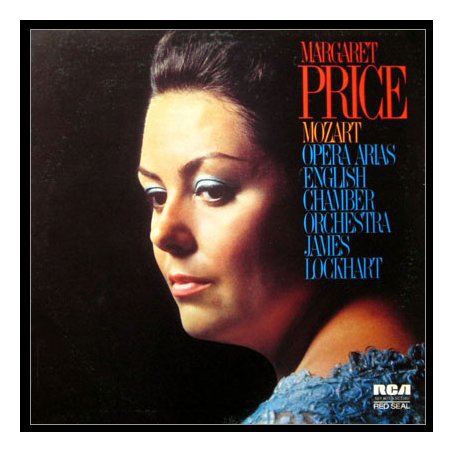 MP: It’s not quite the same. Sure, everything
that you sing is hard work, but with Mozart it’s a special kind of discipline
where you’re forever polishing every note so that they are even, that there
are no flaws in a phrase. I always like to say that it’s like a perfect
set of pearls. That’s what I strive for when I sing Mozart, that every
pearl is of the same quality and size.
MP: It’s not quite the same. Sure, everything
that you sing is hard work, but with Mozart it’s a special kind of discipline
where you’re forever polishing every note so that they are even, that there
are no flaws in a phrase. I always like to say that it’s like a perfect
set of pearls. That’s what I strive for when I sing Mozart, that every
pearl is of the same quality and size.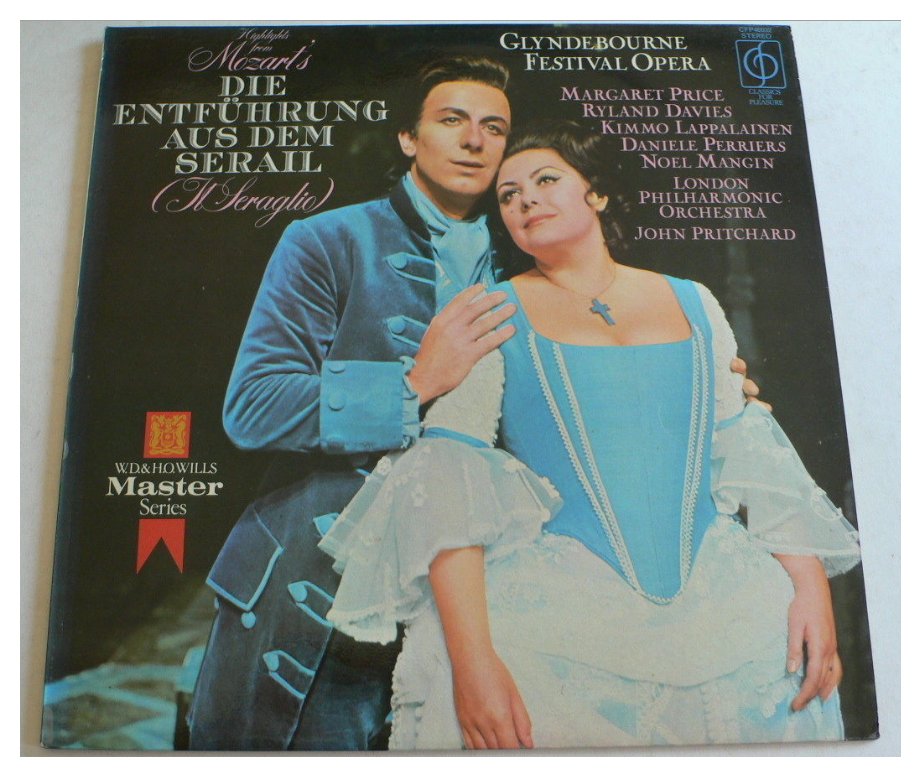
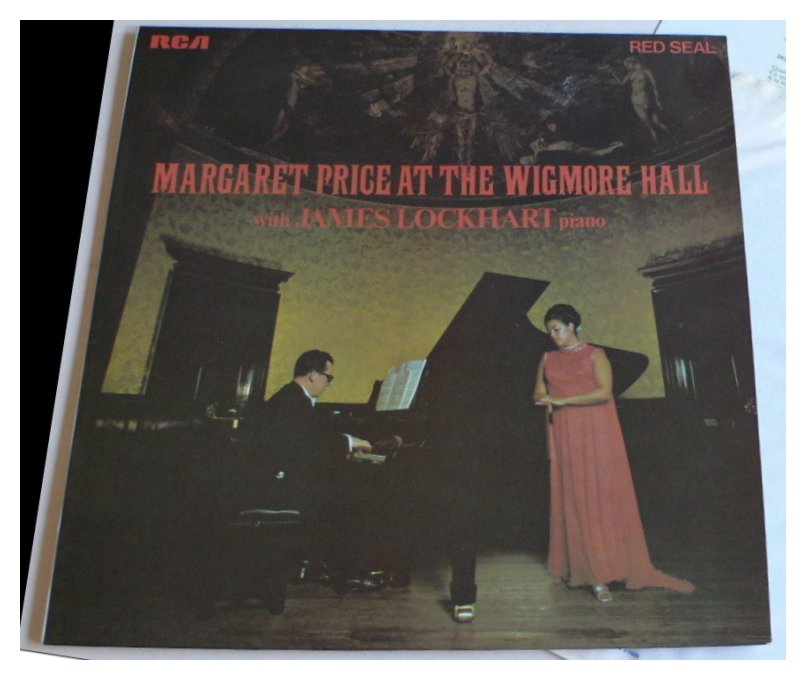
|
Margaret Price in Chicago
Lyric
Opera of Chicago
1972 - Così fan tutte (Fiordiligi) with Howells, Davies, Krause, Evans, Ursula Kozsut; Pritchard, Ponnelle 1975 - Marriage of Figaro (Countess) with Dean, Malfitano, Ewing, Stewart, Voketaitis, Begg, Andreolli; Pritchard, Ponnelle 1985-86 - Otello (Desdemona) with Domingo/Johns, Milnes, Redmon, McCauley/Kunde; Bartoletti, Diaz, Pizzi Chicago
Symphony Orchestra
1971 - Bach B Minor Mass with Veasey, Alva, Shirley-Quirk; Giulini, Hillis 1979 - Beethoven Symphony #9 with Killebrew, Jung, Talvela; Solti, Hillis 1981 - Strauss Four Last Songs; Mahler Selections from Des Knaben Wunderhorn with Abbado 1986 - Verdi Requiem (premiere of new edition by Gossett) with Finnie, Cole, Giaiotti; Abbado 1987 (Ravinia Festival) - Strauss Ariadne auf Naxos (Ariadne) with Lakes, Mentzer, Battle, Prey, Castel, Velis; Levine |
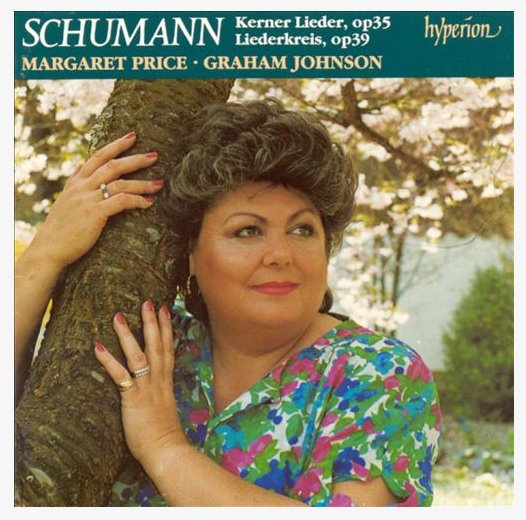 BD: A simple, but prudent answer! We’re talking
a little bit about recordings. Do you enjoy making records?
BD: A simple, but prudent answer! We’re talking
a little bit about recordings. Do you enjoy making records?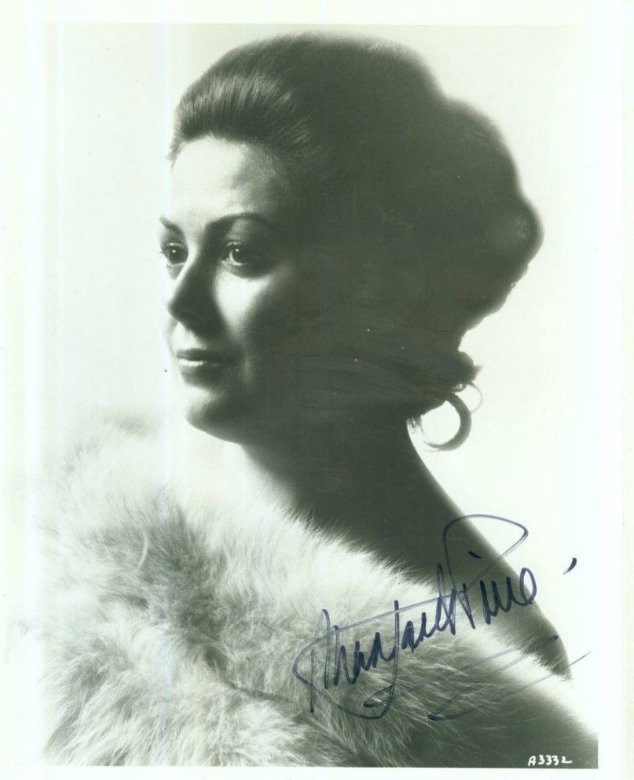 BD: Do you like the recording?
BD: Do you like the recording?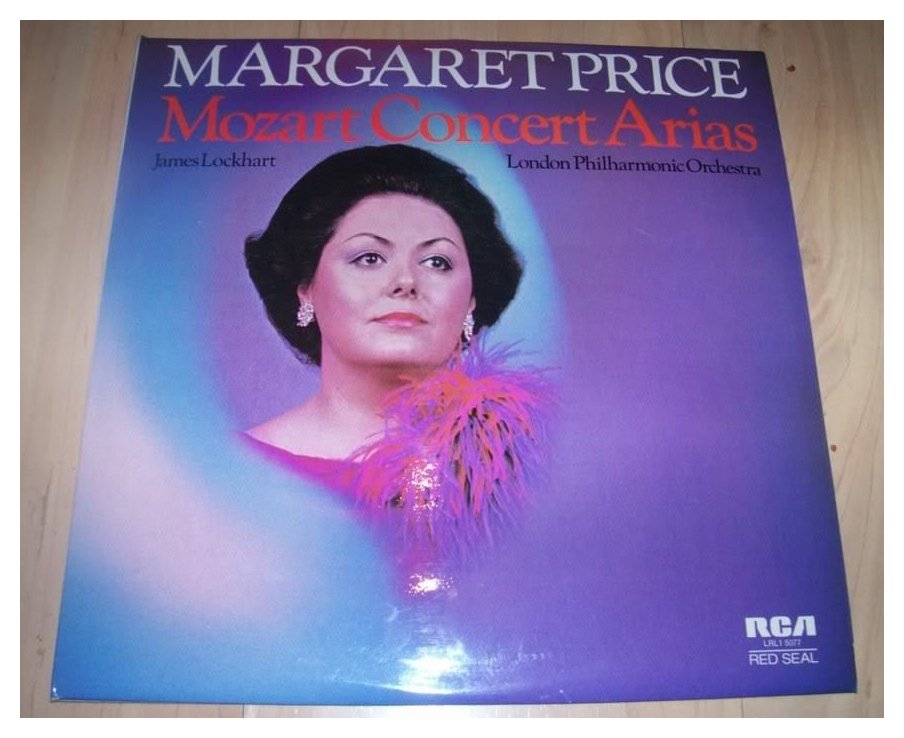
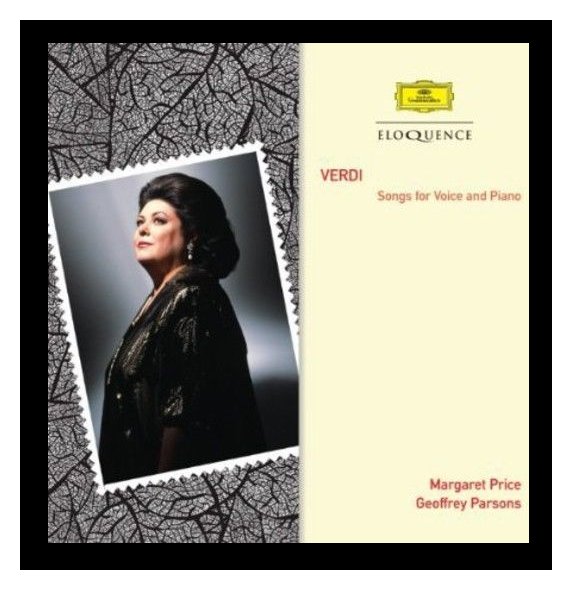 BD: Okay, let me change it around a little bit.
Do you like the woman, Aïda, and do you like portraying her?
BD: Okay, let me change it around a little bit.
Do you like the woman, Aïda, and do you like portraying her?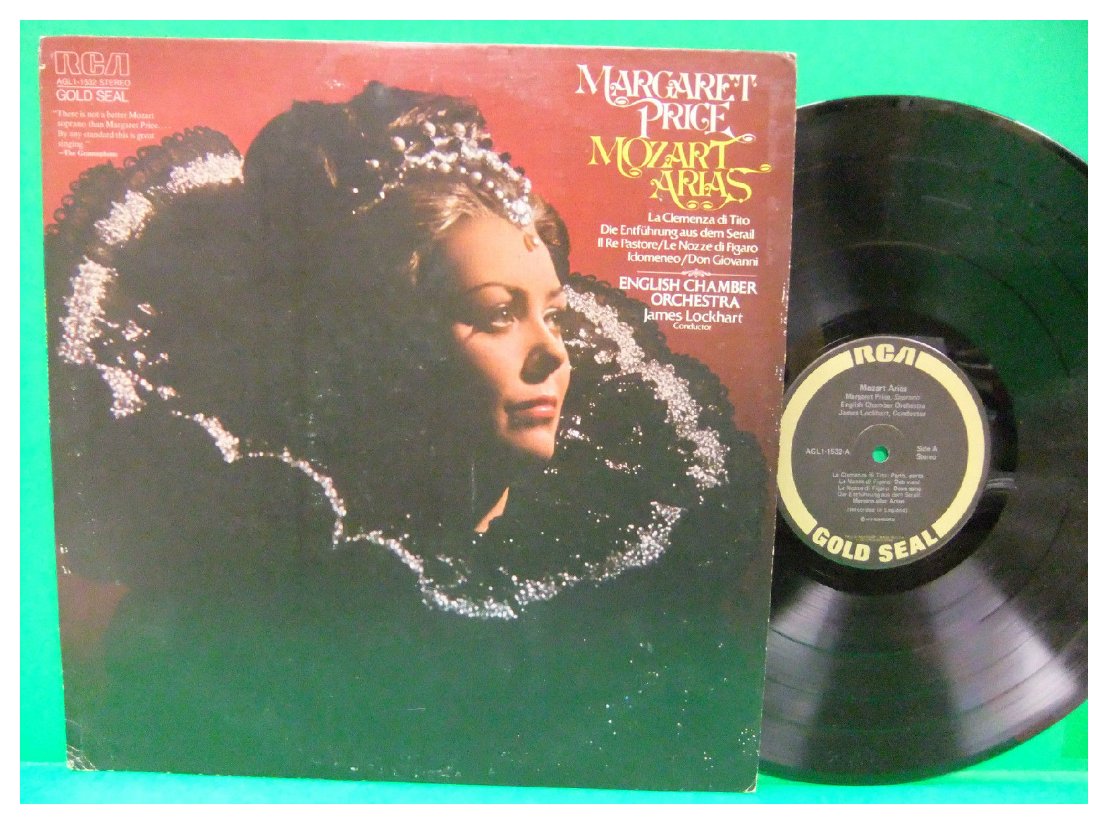
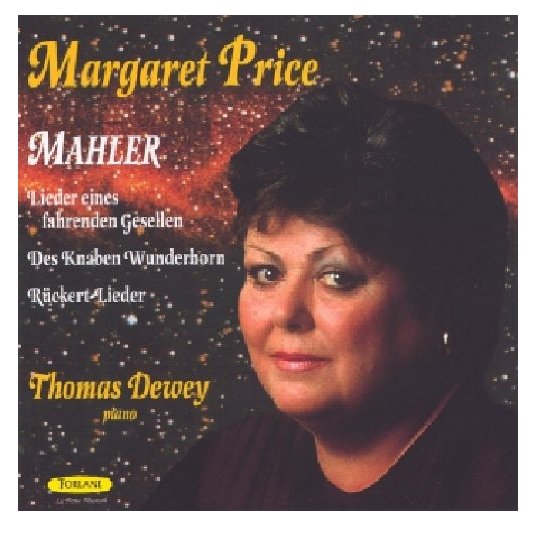 MP: It’s just been a passing fancy! Fiordiligi
just somehow makes it clear. She does not say, “Go
run a mile, or whatever, I don’t want anything to do with you.”
It’s not that. It’s more subtle than that. She just moves slightly
away, and he allows her to be on her own.
MP: It’s just been a passing fancy! Fiordiligi
just somehow makes it clear. She does not say, “Go
run a mile, or whatever, I don’t want anything to do with you.”
It’s not that. It’s more subtle than that. She just moves slightly
away, and he allows her to be on her own.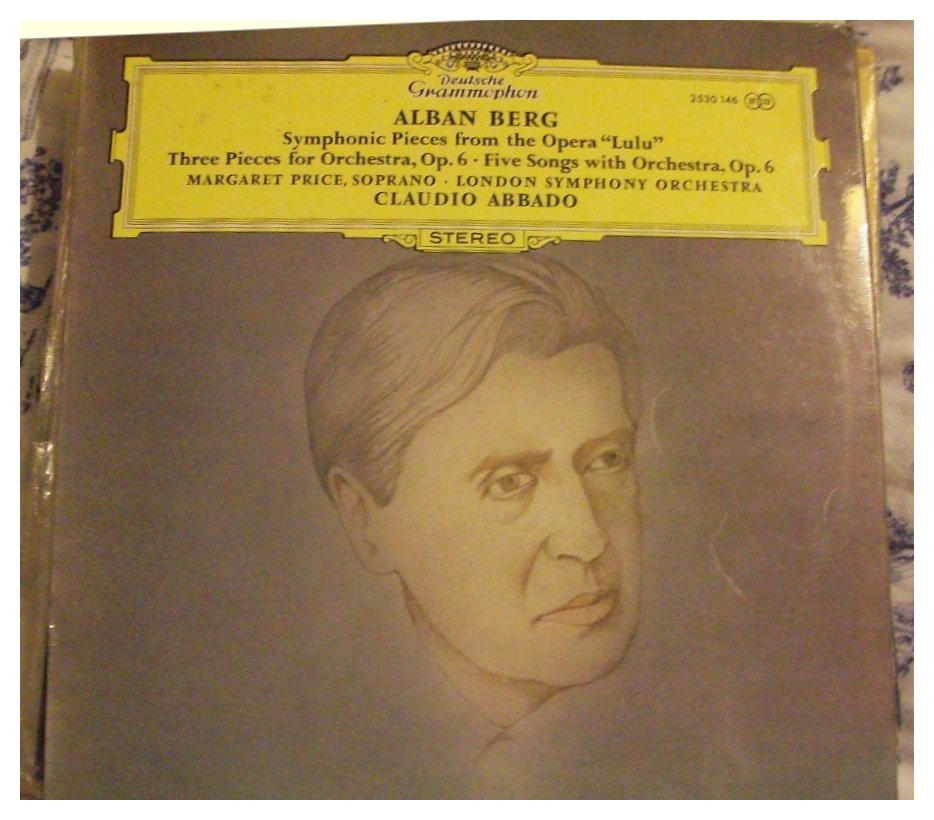
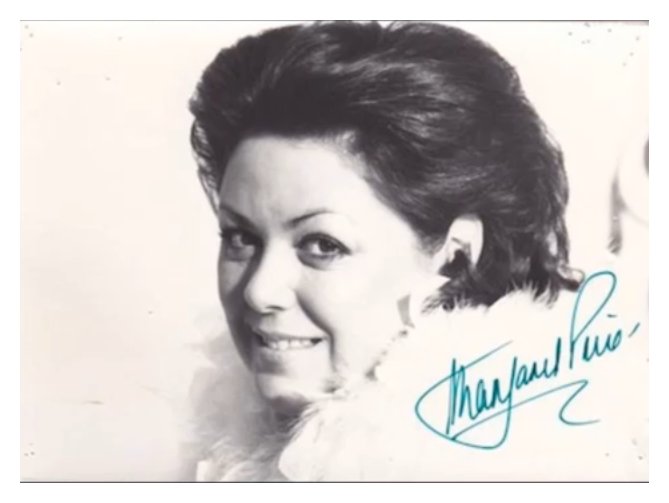 BD: For a revival, do they just pick up the score
and brush it up and it’s done?
BD: For a revival, do they just pick up the score
and brush it up and it’s done? MP: It will always continue to be there. Experimenting
is a good thing, but so long as we have producers who want to go a little
over the board with their experiments at the sake of the music, then I don’t
think it’s a good thing. And so long as you get artists who hold a
gun to the management’s head when making particular demands, I don’t think
that’s a good thing either. I was brought up in a Mozart ensemble,
so I don’t think that way. I suppose if I’d been brought up at the
top, right from the start as a Verdi heroine, maybe I’d think that way as
well? I don’t know.
MP: It will always continue to be there. Experimenting
is a good thing, but so long as we have producers who want to go a little
over the board with their experiments at the sake of the music, then I don’t
think it’s a good thing. And so long as you get artists who hold a
gun to the management’s head when making particular demands, I don’t think
that’s a good thing either. I was brought up in a Mozart ensemble,
so I don’t think that way. I suppose if I’d been brought up at the
top, right from the start as a Verdi heroine, maybe I’d think that way as
well? I don’t know. 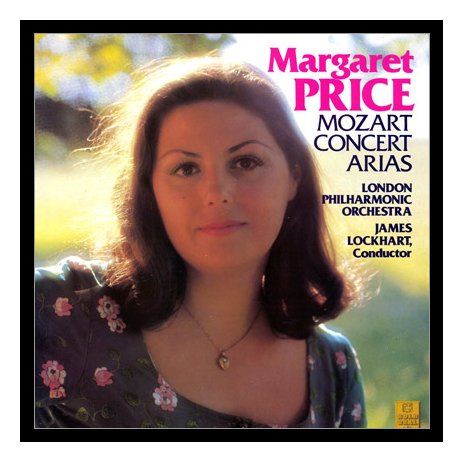 BD: I just don’t see Aïda on the stage at Glyndebourne.
BD: I just don’t see Aïda on the stage at Glyndebourne.Margaret Price Dies at 69, Soprano With Rich
Voice
By ZACHARY WOOLFE Published in The New York Times, February 1, 2011 Margaret Price, the Welsh soprano who brought a voice of pure, floating richness to lieder and the operas of Mozart and Verdi, died on Friday in Wales. She was 69. Her death was confirmed by Paul Jenkins, a funeral home director. The BBC reported that she died of heart failure at her home near Cardigan, overlooking the Irish Sea. Ms. Price was known for the clear beauty of her voice and the modest eloquence of her interpretations. After a recital at Carnegie Hall in 1985, Tim Page wrote in The New York Times, “Her voice has both majesty and intimacy — an all but impossible combination — and her artistry seems capable of illuminating every human truth.” Margaret Berenice Price was born on April 13, 1941, in Blackwood, Wales. Her father was an amateur pianist who would accompany his daughter in songs when she was young but opposed the idea of a singing career, and she initially planned on becoming a biology teacher. Her music teacher interceded and brought her to audition at Trinity College for the eminent choral conductor Charles Kennedy Scott, who offered her admission on the spot. She began her career as a mezzo-soprano, making her operatic debut in 1962 as Cherubino in Mozart’s “Marriage of Figaro” at the Welsh National Opera. Her audition for London’s Royal Opera House featured the unlikely combination of Cherubino’s charming “Voi che sapete” and the seething “O don fatale” from Verdi’s “Don Carlo.” It was these two composers, if not these parts, with whom she became most closely associated. The company hired her as an understudy, over the objections of the music director, Georg Solti, but in June 1963 she had a career breakthrough when she replaced an indisposed Teresa Berganza as Cherubino. She developed her luminous upper register and gradually moved into the soprano repertoire under the guidance of James Lockhart, the conductor and accompanist with whom she had a long professional and personal relationship. She sang her first Verdi role, Nanetta in “Falstaff,” in Wales in 1969, the same year she made her American debut in San Francisco as Pamina in “The Magic Flute.” She sang for the first time in Cologne as Donna Anna in “Don Giovanni” in 1971, the beginning of several happy years when her career was based there. In 1973 Ms. Price made her debut at the Paris Opera, where she sang two of the roles that would become her trademarks: Desdemona in Verdi’s “Otello” and the Countess in “The Marriage of Figaro.” She performed both parts in the company’s acclaimed 1976 American tour. She made a belated debut at the Metropolitan Opera, as Desdemona, in 1985, and returned as Elisabetta in “Don Carlo” in 1989. She spent much of the later years of her career in Munich, where she lived and where the Bavarian State Opera gave her the title “Kammersängerin,” honoring her service to the company. She was made a dame of the British Empire in 1993. Despite her success in opera, her great love was lieder, and she released classic recordings of songs by Brahms, Schubert, Mahler and others. She preferred piano accompanists to conductors, whom she called “my pet hates,” but she worked closely with some of the century’s greatest, from Otto Klemperer, who cast her in the small role of Barbarina in his 1970 recording of “The Marriage of Figaro” and as Fiordiligi in his 1972 “Così Fan Tutte,” to Claudio Abbado and Riccardo Muti. And long after he expressed reservations about her in those first Covent Garden auditions, Georg Solti collaborated with her on several performances and recordings. In 1982, Carlos Kleiber cast her against type as a radiant Isolde in his recording of Wagner’s “Tristan und Isolde,” which became one of her best-loved performances, though she never attempted the role onstage. Indeed, Ms. Price chose her parts carefully and retired them promptly when she outgrew them. She left her core repertory — the Mozart heroines and four or five Verdi roles — only for Adriana Lecouvreur and Strauss’s Ariadne. The single role she regretted never trying was Lady Macbeth, and a Covent Garden “Norma” in 1987 was a rare misstep. Ms. Price leaves no immediate survivors; her younger brother died several years ago. A shy, down-to-earth woman, she retired in 1999 to the Welsh coast, where she taught a few students and bred golden retrievers. She professed not to miss singing at all, and was unsentimental when reviewing her career. Though Mr. Kleiber asked her to do it, she never sang the nostalgic Marschallin in Strauss’s “Rosenkavalier.” “That whole thing about turning the clock back,” she called it with mock disgust. She could never identify with that kind of regret. |
© 1985 Bruce Duffie
This conversation was recorded in her apartment in Chicago on October 9, 1985. Portions were broadcast on WNIB the following year, and again in 1991, 1996, 1997, and 1998. This transcription was made in 2014, and posted on this website at that time. My thanks to British soprano Una Barry for her help in preparing this website presentation.
To see a full list (with links) of interviews which have been transcribed and posted on this website, click here. To read my thoughts on editing these interviews for print, as well as a few other interesting observations, click here.
Award - winning broadcaster Bruce Duffie was with WNIB, Classical 97 in Chicago from 1975 until its final moment as a classical station in February of 2001. His interviews have also appeared in various magazines and journals since 1980, and he now continues his broadcast series on WNUR-FM, as well as on Contemporary Classical Internet Radio.
You are invited to visit his website for more information about his work, including selected transcripts of other interviews, plus a full list of his guests. He would also like to call your attention to the photos and information about his grandfather, who was a pioneer in the automotive field more than a century ago. You may also send him E-Mail with comments, questions and suggestions.